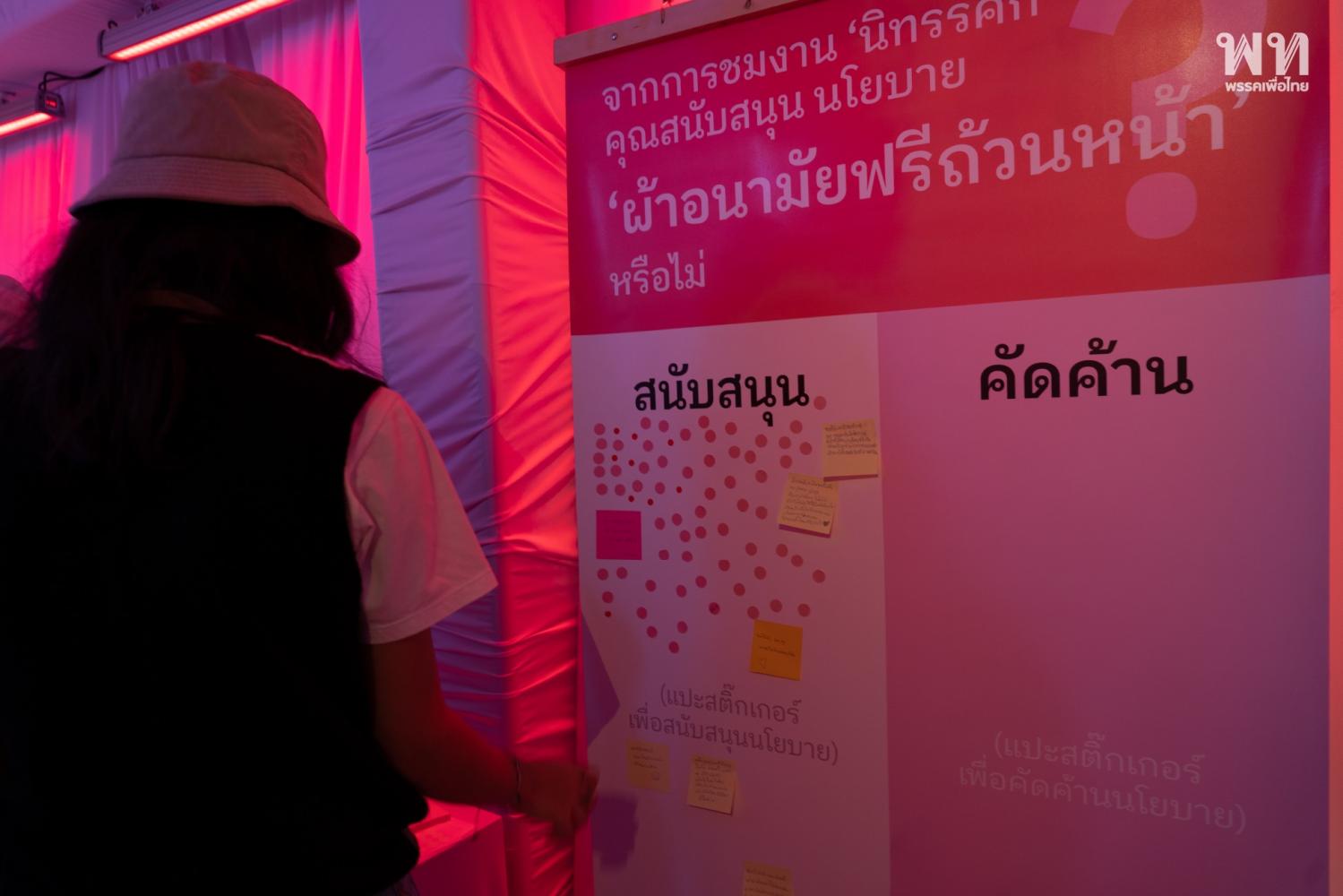
Last week, an ongoing exhibition "Ni Tas Sa Kee" or "Free Pads For All" was launched at The Pheu Thai Party's headquarters on New Phetchaburi Road. On view until March 31, "Free Pads For All", which distributes free sanitary pads to women, is a pilot project that Pheu Thai wants to push for the government to make policy.
Chanan Yodhong, the Free Pads For All project manager, said to the public that Pheu Thai realised that menstruation and sanitary pads are not just a personal matter but a social issue. At the exhibition, Free Pads For All, there is data and information to explain why this project should become a government policy and how to make the policy practical.
However, when the project was shared on social media, most did not receive all the details, so many people, especially men were upset about the project. They questioned why the government would spend taxes collected from both genders to benefit only women. Some people are government supporters, so they are not supportive of any ideas initiated by the opposition Pheu Thai. They claim pro-democracy protesters and anti-government individuals always ask for help from the government instead of being self-sufficient. They believe a sanitary pad is a personal item and the government should not waste taxes on it.
Debate on social media over this issue is ridiculous. Many people who disagree with Free Pads For All made jokes that if the government gives away sanitary pads, there will be never-ending requests. Request for free tissues, free toothbrushes, free food and so on will follow. Men who feel that free sanitary pads are discriminatory started asking for things they felt they deserved to get. One man said men have to shave every day, so men should receive free razors. Another man said due to their physique, they have to eat more than women, so men should receive free food. Also, some women disagreed with the project. They suggested if women cannot afford sanitary pads, they could use fibre from coconut shells as a substitute instead of bothering the government.
I think free sanitary pads are a good idea since their price is quite high and low-wage workers need to spend some of their limited income in purchasing this hygienic necessity. It was a surprise to see many comments on the internet reveal how men do not know much about menstruation. Some men told women to hold their menstruation, and another said women do not have to use sanitary pads every day while having their period. It seems like Thailand's sex or health education is still lacking.
From the Free Pads For All exhibition, it was estimated that women spend 4,800 baht in one year on sanitary pads and about 192,000 baht in their lifetime. It is sad to know that only 35.28% of Thai women can access sanitary pads. During their period, women use four to seven sanitary pads per day. Women who cannot afford sanitary pads have to wear one sanitary pad for the whole day. Some women use other items to substitute sanitary pads such as wearing multiple underwear, placing tissue in their multiple underwear, using pieces of old clothes or a plastic bag.
According to Kee Book, available at https://bit.ly/35MDO8x, which is a part of Free Pads For All, women can get mycosis or bacterial vaginosis if they do not change their sanitary pads every four hours. Thus, underprivileged women should receive this hygienic necessity.
In the project, Pheu Thai plans to provide sanitary pads to many groups including women with low income, the homeless, students and inmates. I agree that these underprivileged women should be assisted by the government. The state agencies, which would be involved in this project, are the National Health Security Office, the Department of Corrections and the Ministry of Education. Another great suggestion from the project is to transfer the 7% value-added tax earned from sanitary pads, to the National Health Security Office, so it can use the VAT as its budget to provide free sanitary pads.
According to globalcitizen.org, there are 20 countries that provide free tampons and/or sanitary pads to women. Scotland became the first country that gave away both tampons and sanitary pads to women in need in November 2020. Most countries provide these sanitary products to students including New Zealand, Australia (only in New South Wales and Victoria), the US (only in Illinois, Washington, New York, New Hampshire and Virginia), France, Botswana and Kenya. In South Korea, sanitary products are available in public spaces.
It seems mostly developed countries can manage to provide free sanitary products and most countries focus on students. Making the Free Pads For All project become a reality in Thailand will not be easy. I hope at least the project will make everyone understand more about the necessity of sanitary products for women. Since the policy will not happen anytime soon, one possibility to help in the meantime is to have a project where people can donate sanitary products to unprivileged women, so they can have the basic necessity that all women deserve.
Suwitcha Chaiyong is a feature writer for the Life section of the Bangkok Post.
